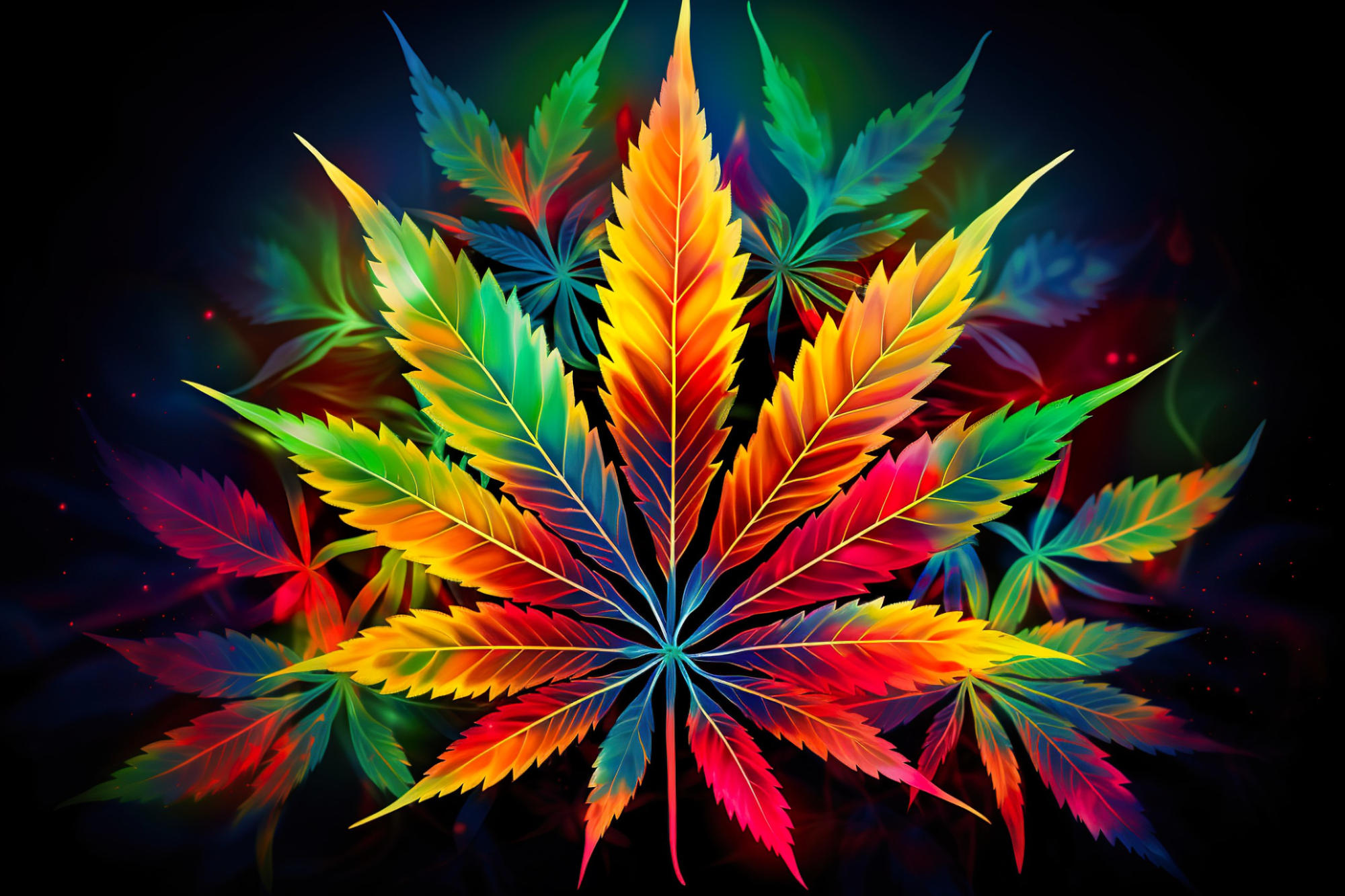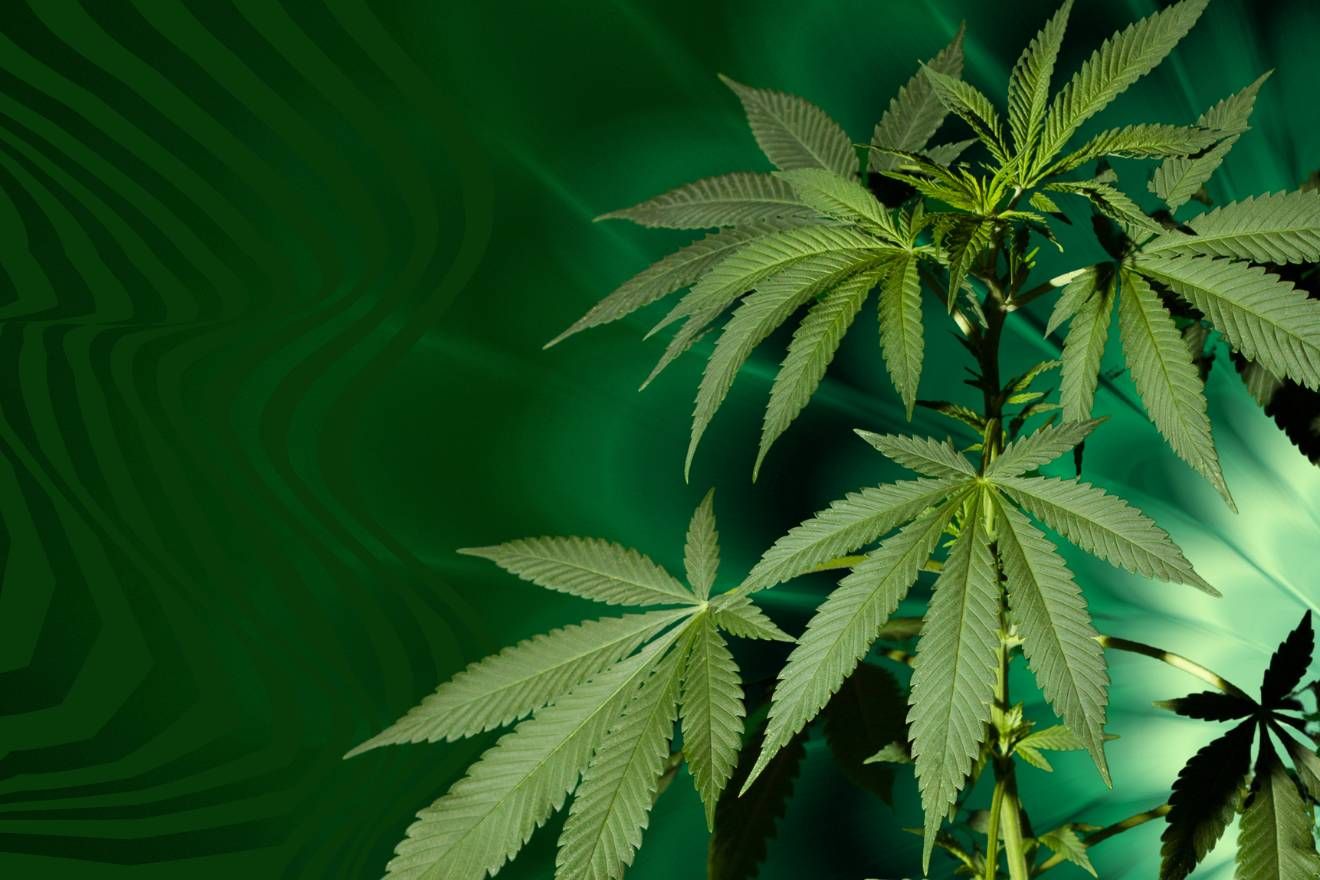Cannabis has long been known for its psychedelic properties, with users reporting altered perceptions, heightened sensory experiences, and enhanced creativity. Many people have turned to cannabis as a tool for exploring their consciousness and delving into the depths of their own minds. The psychedelic nature of cannabis can lead to profound insights and spiritual experiences, allowing users to connect with their inner selves and the world around them in new and meaningful ways. Some users have even described cannabis as a “teacher plant,” guiding them on a journey of self-discovery and personal growth.
The psychedelic effects of cannabis are often attributed to the compound THC, which is responsible for the plant’s psychoactive properties. When consumed, THC interacts with receptors in the brain and nervous system, leading to changes in perception, mood, and cognition. These effects can vary greatly from person to person, with some users experiencing profound insights and spiritual awakenings, while others may simply feel more relaxed and euphoric.
For many people, the psychedelic nature of cannabis offers a unique and profound way to explore the inner workings of their minds and gain a deeper understanding of themselves and the world around them. Some users report experiencing enhanced creativity and a heightened sense of awareness while under the influence of cannabis, leading to new perspectives and insights that may not have been possible otherwise. Others use cannabis as a tool for meditation and introspection, using the plant to quiet their minds and connect with their inner selves on a deeper level.

Despite its potential for spiritual growth and self-discovery, the psychedelic nature of cannabis also carries some risks. Some users may experience anxiety, paranoia, or confusion while under the influence of the plant, especially if they consume too much or are in an unfamiliar or uncomfortable setting. It is important for users to approach cannabis with caution and respect, being mindful of their dosage and setting in order to minimize the risk of a negative experience.
In conclusion, the psychedelic nature of cannabis offers a unique and profound way to explore the inner workings of the mind and connect with the world on a deeper level. Many users have reported experiencing heightened creativity, spiritual insights, and personal growth while under the influence of cannabis, using the plant as a tool for self-discovery and introspection. However, it is important for users to approach cannabis with caution and respect, being mindful of their dosage and setting in order to minimize the risk of a negative experience. Ultimately, the psychedelic nature of cannabis can be a powerful and transformative tool for those seeking to expand their consciousness and explore the depths of their own minds.
Exploring the Psychedelic Nature of Cannabis
Cannabis has long been associated with a psychedelic experience, with users reporting altered perceptions, enhanced sensory experiences, and a feeling of connection to the universe. This psychedelic nature of cannabis is often attributed to the plant’s active compounds, such as THC and CBD, which interact with the brain’s endocannabinoid system to produce a range of effects. These effects can vary from person to person, with some experiencing a sense of euphoria and relaxation, while others may feel anxious or paranoid.
The psychedelic nature of cannabis has also been linked to its potential therapeutic benefits, with some studies suggesting that it may help alleviate symptoms of anxiety, depression, and PTSD. However, more research is needed to fully understand how cannabis interacts with the brain and body, and to determine its potential risks and benefits. Overall, exploring the psychedelic nature of cannabis can provide valuable insights into the complex relationship between plants and the human mind, and may offer new avenues for understanding consciousness and perception.
Cannabis and Altered States of Consciousness: A Deeper Look
Cannabis has been used for centuries for its psychoactive effects, which can lead to altered states of consciousness. When someone consumes cannabis, the active compounds in the plant interact with the body’s endocannabinoid system, affecting neurotransmitters in the brain. This can result in feelings of euphoria, relaxation, and heightened sensory perception. Some users report experiencing a sense of time distortion, increased creativity, and a deeper connection to their emotions and surroundings. These altered states of consciousness can vary depending on the strain of cannabis consumed, the dosage, and the individual’s tolerance and mindset.
For many people, using cannabis can be a way to explore different aspects of their consciousness and gain new insights into their thoughts and emotions. Some users find that cannabis helps them to relax and unwind, while others use it as a tool for introspection and self-discovery. In some spiritual and religious traditions, cannabis is used as a sacrament to facilitate meditation and enhance spiritual experiences. The altered states of consciousness induced by cannabis can also be used therapeutically to alleviate symptoms of anxiety, depression, and PTSD.

However, it is important to note that cannabis is not without risks. Some users may experience negative side effects such as paranoia, anxiety, and impaired cognitive function. Prolonged and heavy use of cannabis can also lead to dependence and addiction. Additionally, driving or operating heavy machinery under the influence of cannabis can be dangerous and is not recommended.
In conclusion, cannabis has the potential to induce altered states of consciousness that can be both profound and enlightening. While some people may find value in exploring these altered states, it is important to approach cannabis use with caution and mindfulness. By understanding the effects of cannabis on consciousness and being aware of the potential risks, individuals can make informed decisions about their use of this plant.
Comparing Cannabis to Classic Psychedelics: What’s the Difference?
Cannabis and classic psychedelics are both substances that alter consciousness and perception, but they have distinct differences in their effects and mechanisms of action. Cannabis, commonly known as marijuana, contains THC, a compound that interacts with the brain’s endocannabinoid system to produce a range of effects, including relaxation, euphoria, and altered sensory perception. Classic psychedelics, such as LSD and psilocybin (the active compound in magic mushrooms), work by binding to serotonin receptors in the brain, leading to profound changes in perception, thought, and emotions. While both substances can produce hallucinations and altered states of consciousness, classic psychedelics are generally more intense and have a greater potential for inducing mystical or transcendent experiences.
Another key difference between cannabis and classic psychedelics is their potential for therapeutic use. While cannabis is commonly used for its relaxing and mood-enhancing effects, research has shown that classic psychedelics may have promising applications in treating mental health conditions such as depression, PTSD, and addiction. The psychedelic experience has been described as a “mind-expanding” or “ego-dissolving” experience that can lead to increased self-awareness, empathy, and personal growth. In contrast, cannabis is more commonly used for recreational purposes or to alleviate symptoms of medical conditions such as chronic pain or nausea.
In terms of safety, cannabis is generally considered to have a lower risk of adverse effects compared to classic psychedelics. While cannabis use can lead to short-term memory impairment, impaired motor coordination, and increased heart rate, the risk of overdose or serious physical harm is low. Classic psychedelics, on the other hand, can cause intense psychological effects such as anxiety, paranoia, or even “bad trips” in some individuals. However, when used in a controlled setting with proper preparation and support, classic psychedelics are generally considered to be safe and non-addictive.
In conclusion, while cannabis and classic psychedelics both have the potential to alter consciousness and perception, they differ in their effects, therapeutic potential, and safety profiles. Understanding these differences can help individuals make informed decisions about their use of these substances and explore their potential benefits in a responsible and mindful manner.
Therapeutic Potential: Can Cannabis Be Used Like Psychedelics in Therapy?
There is growing interest in exploring the therapeutic potential of cannabis in a similar way to how psychedelics are being used in therapy. Research suggests that both substances have the ability to alter consciousness and perception, potentially leading to insights, emotional breakthroughs, and spiritual experiences. Some therapists believe that cannabis may help patients access repressed emotions, memories, and traumas, allowing them to process and heal from past experiences. Additionally, the endocannabinoid system in the body plays a crucial role in regulating mood, stress, and memory, suggesting that cannabis could have powerful therapeutic effects on mental health conditions such as anxiety, depression, and PTSD.
Like psychedelics, cannabis has the potential to induce a state of heightened introspection and self-awareness, which can be beneficial for individuals seeking personal growth and self-discovery. However, it is important to note that the effects of cannabis can vary widely depending on the strain, dosage, and individual’s unique biochemistry, making it essential for therapists to carefully tailor treatment plans to each patient. While more research is needed to fully understand the therapeutic effects of cannabis, there is a growing body of evidence supporting its potential as a valuable tool in therapy. As the stigma surrounding cannabis continues to diminish, it is becoming increasingly accepted as a legitimate option for mental health treatment. With proper guidance and oversight, cannabis could prove to be a valuable addition to the therapist’s toolkit, offering new possibilities for healing and growth.

Scientific Perspectives: The Debate on Cannabis as a Psychedelic
The debate on cannabis as a psychedelic continues to be a complex and contentious issue within the scientific community. While some researchers argue that cannabis can have psychedelic effects due to its ability to alter perception and consciousness, others maintain that it does not fit the traditional definition of a psychedelic substance. Proponents of the psychedelic classification point to the psychoactive compound THC found in cannabis, which can induce changes in sensory perception, mood, and cognition. They suggest that these effects can lead to introspection, creativity, and spiritual experiences similar to those induced by classic psychedelics like LSD or psilocybin.
However, skeptics argue that cannabis lacks the profound and mystical experiences typically associated with psychedelic substances. They contend that the effects of cannabis are more mild and variable, making it difficult to categorize it as a true psychedelic. Additionally, some researchers believe that the classification of cannabis as a psychedelic could oversimplify the diverse range of effects and potential risks associated with its use. Overall, the debate on cannabis as a psychedelic highlights the need for further research and a nuanced understanding of its effects on the mind and body. By exploring the unique properties of cannabis and its potential for altered states of consciousness, scientists can contribute to a more comprehensive understanding of this complex plant and its psychoactive effects.
